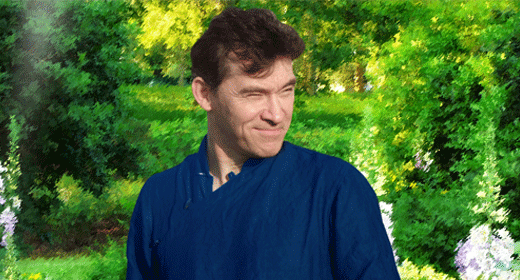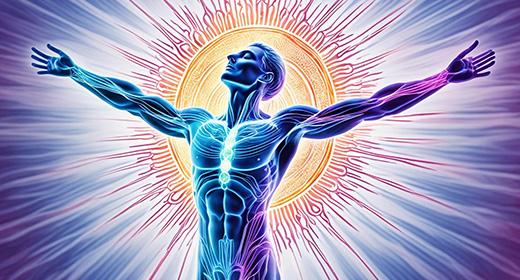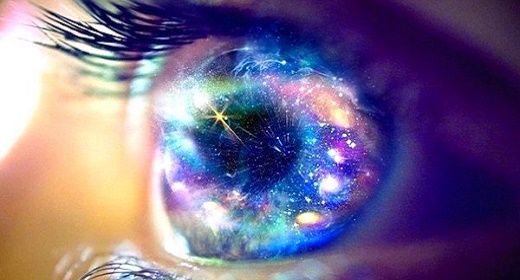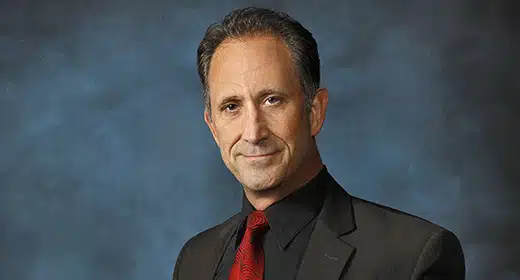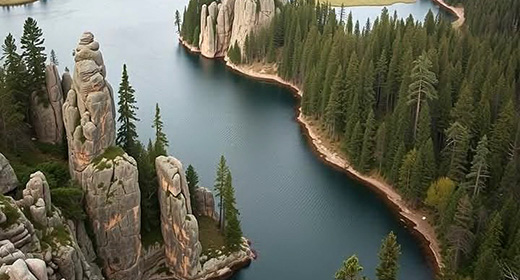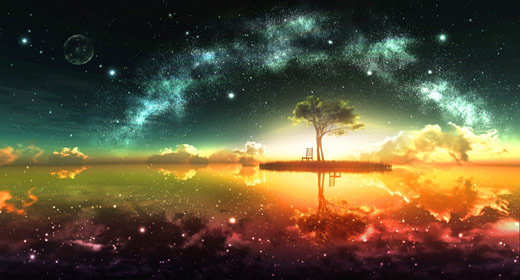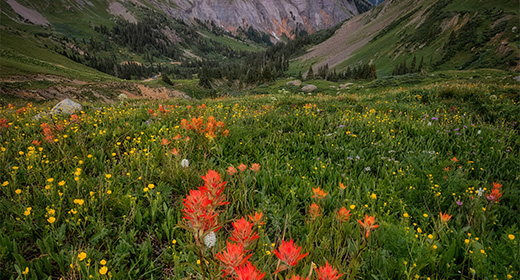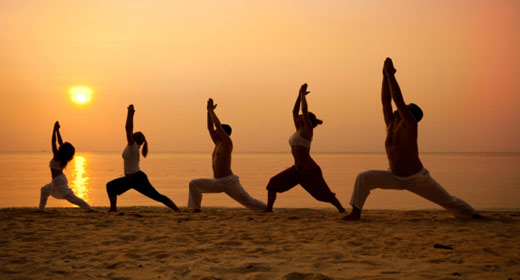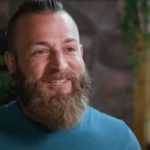Donna Quesada: Well, it’s so nice to meet you! Chris Steely: Nice to meet you, as well.
DONNA: I want to just start out by thanking you for your time and sharing with you how excited I am, even personally, just to get to know more of your work. I found it very interesting as I was researching for this interview… the way you’ve combined different modalities in your own approach to coaching.
CHRIS: Yeah, it’s been an interesting run. I’ve never lived this life before and as I’m pushing 60 I’ve been looking back and I was like, “Wow, what an interesting ride it’s been.”
DONNA: I bet. But first, since you’ve seen some of our videos, you know we have a special way that we like to start, and so if you don’t mind, I’ll dive right In with the question of what it means to awaken.
CHRIS: All right, I love the dive. Okay, so awaken… When I think of “being awake” and “awakening,” it’s about being fully alive, fully aware, fully conscious frankly, and I think of awaken in the context of categories, right? There are categories and aspects of life that we can be awakened to. So it’s spiritual awakening, personal awakening, social, political, cultural, right?
For me, it’s more of an angle on awareness. So, when I think of awakening, it’s about transforming, in the context of waking up and it varies from person to person as we bring in our beliefs and our experiences and our contexts in life, right? So, I believe in is essence, awakening is the process of understanding one’s true self. The strengths, weaknesses, desires, purpose… that often lead to a sense of inner peace and alignment with one’s authentic self, ideally, right? That’s awakening. My journey… again pushing 60, has been a journey of awakening and I’m still awakening. It’s a constant ongoing process, I believe. So, how’s that for an answer?
DONNA: Well, you know, I love that you said that and I want to zero in on a few things that piqued my interest there. You were saying we can awaken in different areas. So we might be awake in some areas, but not in others. And you were also saying in so many words that it’s a process. It doesn’t mean that you’re perfect… so many people think of enlightenment as the state of perfection that washes over you, but it’s not that either. It’s a process and we can be a little bit awake or more awake and awake in certain areas, but not in others. I find that fascinating and I’m glad that you made those points.
CHRIS: I like that because I always think of enlightenment like a light turning on. Enlightenment for me is more like a rheostat, right? It’s like something you can dim and then turn up and make brighter. I don’t think enlightenment is a switch that is flipped. I think it’s more of an awareness that matures through life.
DONNA: I like that. The dimmer switch. That is a fantastic metaphor and it really conveys that sense of the process. It’s a lifelong process and it doesn’t stop. We don’t get to a point where we sit like Buddhas and we’re this perfect being that doesn’t have any more challenges. As long as we’re human, it’s going to continue and maybe even flicker sometimes or maybe even be a little dimmer on certain weeks and then brighter during other times in our lives and so forth.
CHRIS: We’re all up against it. Life challenges us. And, interestingly, we live in a world of social media where it looks like everybody else’s life is great. Everything’s okay. Everybody else is enlightened but what you’re not seeing is the dynamic that is happening behind the scenes. It’s almost when I reach a level of enlightenment, that the challenges begin to take me to the next level and help cultivate the level of maturity that I need to go to that next level. So we get to embrace that. It’s all part of the maturity process.
DONNA: And it might sound like an obvious question. But what is the point? For someone watching with fresh ears, they’re going about their business… they’ve got their family, they’ve got their job, they’re raising their kids, they’re busy… “What is this Awakening stuff and how will it make my life better?” Someone might be asking.
CHRIS: That’s a good question because for some people it may not be of interest. It may not be of intrigue. Some people may not have an interest in being awakened. And my experience is, those are the type of people that go through life and they live life, and life is something that’s lived. For me, I’m a seeker and I think for seekers that are oriented toward the possibilities and what can be and understanding that this journey is something that’s wonderful.
It’s that wonder that I seek, and I think the imperative is that we get to choose what level of wonder we seek. In my experience of the world, and I don’t want to pass judgment or make any sweeping statement… but a lot of people don’t necessarily seek that wonder. They go through life practically transactionally, and they do the best they can, but they don’t have that ambition… that passion to awaken, if you want to call it that.
DONNA: It’s like something else you said that I loved… that it’s this “awareness of one’s own strengths and weaknesses.”So it’s not necessarily to conquer all of those weaknesses, it’s to have the awareness of them, so that in knowing your strengths, you can park better in whatever you’re doing in life… in a grander sense. And put yourself in a place where those strengths are accentuated and where you’re more likely to succeed and so forth. Would you agree with that?
CHRIS: Yeah, and I believe we all have a responsibility to understand ourselves foundationally, whether it be profiling, or astrology, numerology… actually taking surveys and truly understanding our identities. I guess an explorer and an adventurer, I was a seeker all my life. I’ve enjoyed the dynamics of spiritual actualization in the context of psychotherapy, looking at why I was put here, when I was put here, and what that means, and I get to unpack it and make distinctions.
Again, I’ve got my own story of birth that I’ve challenged and everything that comes along with it and we all do. Again, as that seeker, I’ve always delved into the intricacies of the essence of who I am, whether it be through foundational profiles or even just awareness of, again, my human design… the old Jungian archetype idea, and looking at that and making distinctions and playing toward that. Not necessarily seeing it as gospel, but giving me a foundation to start from. And frankly, in my life, a lot of it has resonated because I understood the fundamentals of life, what my passions are, and what my North Star is. I’ve done the work to understand what course I’m on and I continue to be on that course, and life continues to be fulfilling because of it.
DONNA: You used the term self-actualization, and in reading through some of your work, I’ve seen you use that expression before. Are you using that interchangeably with awakening or does that mean something different to you?
CHRIS: When I think of the term self-actualization, I think of the Maslow hierarchy. Hierarchy of needs. So you consider Maslow and everything we know about that and the pyramid, and at the very top of the pyramid is that self-actualization… that self-awareness. Again, it’s almost like a rheostat. We’re always increasing. I don’t think we ever get the full enlightenment. So self-actualization is that understanding of self, and notice when I do this, I say “Self,” the heart, the essence, the spirit. Self is up here too, yet my bias is that the real self, the essence of who we are, is flesh and bone meat packages that have something inside of it, actualizing that and respecting our physical presence, but also honoring what’s beyond the physical. That’s my definition of actualization yet it’s a term that is relatively definable. People can determine what self-actualization means to them.
DONNA: Is it coming from the heart or coming from someplace that’s not the ego?
CHRIS: I think it comes from both places. It comes from other places, too. One of my mentors asked me, “How do you know when somebody’s projecting?” Well, their lips are moving. We all project so my bias in that context is that it comes from here and it includes the ego. Ego is not a bad thing. We have to understand what our ego is, and I’ve come to terms with the essence of my ego at a deep level and I’ve seen it for what it is. And I’ve learned to embrace it and not let it have its insidious effects on me because I know it can. But you’re going to see it’s the stand. It’s a wonderful stand that we all are… whether it be our psychology or our ego, our identity, the paradigms of how we think, how we’re raised, what region we’re brought up in, and how that influences us. So it’s an aspect of many facets of being and that comes together to weave a tapestry, a unique tapestry of each human.
DONNA: This is so interesting. I love to explore these various roles of the ego. It’s so easy to say the ego is bad, kill the ego. But you were saying it’s not bad if it’s used properly. I’m injecting here a few of my own thoughts, but correct me if I’m recapping what you said incorrectly. But it can be insidious. I’m wondering if we could explore that a little bit. When does it get insidious? What is the proper use of the ego, in other words?
CHRIS: When I think of ego, as a human being who’s been given a body that I’m responsible for taking care of, and I’ve been given a personality that’s allowed me to be able to interact with other souls in this realm, my ego allows me to be aware of how that is. When you think about that, a lot of that is around appearance. When I think of ego, one of the words that comes along is aggrandizement. Being aggrandized, looking good. Notice how as I say that, we all have an essence that we get to portray and we get to convey and we get to be. That’s a component of ego and it’s almost like a façade that we project, but then if we internalize that façade of who we are, then we get caught up and trapped again. I’m as human as anybody else is… get caught up and trapped in the insidious nature of how it is just about me, and it’s self-centered and it’s self-oriented, which we all are. We are self-oriented, we’re self-centered. We are the center of our universe.
DONNA: Yes.
CHRIS: We all are, again, flesh and bone meat packages. You are who you are. I’m who I am, we have no choice but to be oriented toward that foundation of who we are, as a self and that ego is there to galvanize that, to keep that strong. At the same time, it can get corrupt in a world that is corrupt to some extent, where people overpower one another because they want to look better. Then you get into the identity of the psychology of that overpowering, which creates the insidious dynamic, and that’s the bad reputation the ego gets… like Wayne Dyer says, “edging God Out.” That’s what EGO is, Edging God Out. So in that context, we get to realize that who we are, is a creator-based thing. That I was put here to manifest, whatever life I’m here to manifest by my creator, and not get caught up in the trappings of the superficialities and the appearances, realizing they’re there. We have to understand that they’re there and we’re responsible for being the essence physically… who we must be, but not get trapped again into that vortex, in that cycle that I see way too many people, way too many leaders these days… you can see they’re driven by that.
DONNA: Yeah.
CHRIS: They have to have that aggrandizement and we’ve got to be conscious of that. That’s an aspect of self-actualization and we get to determine where we are on that path, on that level of awareness. I’m still working through it, doing the best I can.
DONNA: Well, let me go in that direction a little bit. The work that you do was so interesting to me because you’re combining your experiences from the martial arts, as well as your experience with the Marines. This is so unusual. I have to say I’ve never interviewed someone who has come from a background so diverse in this particular way, and it forced me to confront my own feelings or maybe biases against the Marines, thinking, “Oh, it’s part of the war machine or something like that.” But that is not true. You used that to train yourself and discipline yourself and you’ve brought that to your work as a coach, and that has been a valuable tool for you. And in reading through that, I came to respect that background maybe more than I did. I was maybe deficient in my knowledge of how a background like that could be a proper support system for a disciplined life. I’m wondering if you could speak to that a little bit and how that trained you for the work that you do today, and how it also went hand-in-hand with your training in other areas. I know that was kind of a long question, but we can go bit by bit through that.
CHRIS: I appreciate you putting that in the space, by the way, because what you’re identifying is again, back to our biases and our projections. We all have biases and projections.
DONNA: Yeah.
Chris: As a marine, we understand that it’s a community. It’s a camaraderie. It’s practically a fraternity of people that understand one another but most people don’t understand Marines. But in our circles, we say that the Marine Corps from my perspective, is just about the most noble institution there is on the planet. Nobility, honor, courage, commitment, strength, endurance, brotherhood, sisterhood, camaraderie. It’s just everything that comes along with it. And it’s a synthesis of all of that, that empowers the human spirit to perform and to excel. Back to the biases in the projections we have… Our society thinks that it’s just the war machine and we have to win. Marines have to win and on the field of battle, if you look at the history, it is violent. It can be aggressive. I’m not a big fan of war. I’m a Peaceful Warrior as Dan Millman writes in his book. I love the Peaceful Warrior. Then, of course, the movie that David produced. I love that movie. It defines my…
DONNA: I’m glad that you mentioned that because David will just love that you loved it and he’s very proud of that work. So yeah.
CHRIS: I think that’s what brought David and me together, is a whole warrior ethos. I’m a warrior but it’s not about war, right? It’s about taking myself on. The Marine Corps is an institution. Again, it brings a level of passion because I remember when I became initiated into that fraternity… such a feeling of nobility, and honor, and respect… knowing what it was doing for me as I got initiated through a brutal crucible and it broke me down and built me back up.
I always say I was a Marine Corps logistics officer. I led Marines in the field of running the business of the Marine Corps and what it did is it conditioned to me, and us, to do whatever it took to be able to accomplish the mission. We always say that the Marine Corps… we call it as like the last bastion of pure leadership because you’re leading people to pay the supreme sacrifice potentially and do it with enthusiasm. It’s like, “What?” But imagine doing that.
That’s what I love about it. It’s a culture that, again, as I say, is misunderstood, but I believe it’s the most noble culture that exists, and what it’s done for me has allowed me to understand the value of shifting my context, and challenging myself through my zones of comfort and fitness. Physical fitness, mental fitness, emotional fitness, and all the components that come along with that. And the Marine Corps has allowed me to find… it’s one of the foundational aspects of my life. Athletics was foundational. I won a national championship and I coached that athletically. But the Marine Corps gave me that foundation of that ethos of, again, courage, camaraderie… doing what it takes. I believe that my bias is that the world needs more. We need more people that come from that space, not of war and violence, but of nobility and honor, courage and commitment.
Read and Watch Part 2 Here: Awaken Interviews Chris Steely Pt 2 – Plant Medicines Are a Channel For Consciousness
Read and Watch Part 3 Here: Awaken Interviews Chris Steely Pt 3 -Surrender To Your Purpose

